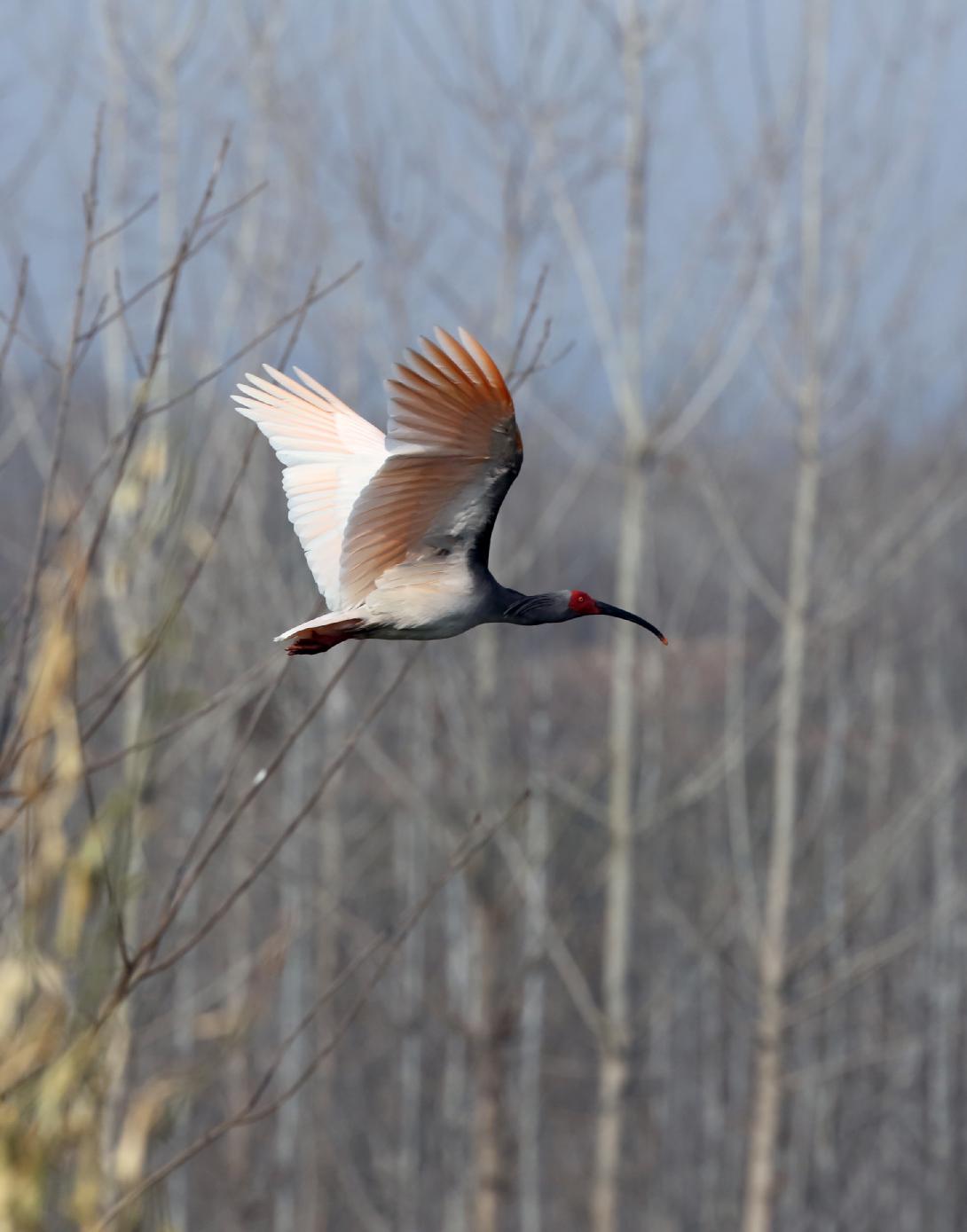Crested ibis (Nipponia nippon), a Chinese national protected animal, is one iconic example of endangered birds that have been saved from the blink of extinction. The species was once widely distributed in China, East Russia, Korea, and Japan before the 1860s. However, its population declined drastically in the late 19th and early 20th centuries, ultimately died out in most of the habitats and was once considered as an extinct species. By 1981, seven individuals from two breeding pairs were re-discovered in the Qinling Mountains of China, and were used in conservation program for this species, which now has increased the crested ibis’ population to over 2,000 individuals and was recognized as one of the most successful conservation programs. This species has offered an excellent model to study how the population changes of a species imprinted the signals in its genome and to what extent the population decline has been influenced by human interference or natural selection.

Crested ibis (Nipponia nippon) (Image By QI Xiaoguang)
To address these questions, researchers sequenced and compared the genomes of historical ibis samples collected a century ago from the former living geographic regions and the modern samples from the breeding programs. This study was led by Prof. ZHANG Guojie at Kunming Institute of Zoology, Chinese Academy of Sciences, Universitiy of Copenhagen and China National GeneBank in collaboration with others from Universitat Pompeu Fabra in Spain.
The historical samples of Crested Ibis were collected from 9 museums, including World Museum (Liverpool), National Museum of Natural History, Smithsonian Institution National Museum of Natural History, Natural History Museum (London), Naturalis Biodiversity Center Leiden (the Netherlands), Natural History Museum Vienna, Senckenberg Natural History Museum; Stuttgart State Museum of Natural History, American Museum of Natural History; and Natural History Museum of Denmark.
By comparing genome of contemporary population with historical samples, the researchers found that the decline of ibis populations began at 10,000 years ago, a period when the climate should be suitable for ibis. This finding suggests that the ancient ibis’ population might be affected by human activities much earlier and more seriously than we thought.
Though the population size of contemporary population has recovered after the three decades of conservation effort, they have lost nearly half of overall genetic diversity in historical populations and suffered a high level of deleterious mutation accumulation due to the intense inbreeding effect. For example, the diversity of major histocompatibility complexes (MHCs) (immune gene clusters essential to the vertebrate immunity system) is significantly lost in contemporary population. These results provide essential guidelines to future conservation program of ibis by offering targeted genes that have been lost diversity during the conservation program. With genetic background of each bird, scientists could design breeding program to reduce the chance of inbreeding and increase genetic polymorphism of important genes efficiently.
This study was supported by the Strategic Priority Research Program of Chinese Academy of Sciences, Grant No. XDB31020000 (S.F.), the Strategic Priority Research Program of the Chinese Academy of Sciences, Grant No. XDB13000000 (G.Z.). The article was published in Current Biology on Jan. 11th 2019: https://www.cell.com/current-biology/fulltext/S0960-9822(18)31609-9.
(By FENG Shaohong; Editor: HE Linxi)
Contact:
HE Linxi
helinxi@mail.kiz.ac.cn
